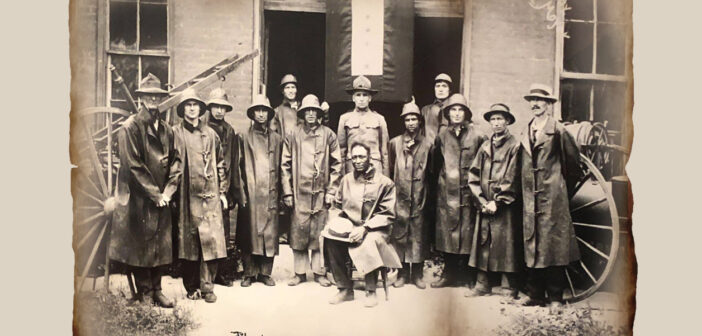Joe Gage wanted a quiet birthday. On the day he turned 87, he was to be honored by a small group of local businessmen for his contributions to Flushing’s economy as a member of its Board of Commerce, for his voice on the Village Council and for his unwavering support of its community at-large. As word got out, however, what was meant to be a small ceremony became one of the biggest community dinners, drawing the largest crowd to Flushing in its young history. The event was attended by over 1,300 people who all came to pay their respects to Flushing’s top man of integrity and high-esteem. Gage was moved, saying “I don’t know what I’ve done to deserve all this. I don’t think I deserve it. I’ve lived a long and happy life, especially the part I’ve lived in Flushing.”
Born in 1866, Gage was the son of former slaves in Wilkes Barre, PA. Orphaned at the age of eight, he worked in the local coal mine before coming of age and traveling the country. He took odd jobs in Indiana before moving to Grand Rapids, MI. It was here that Gage took up professional boxing as a way to earn money. In 1887, he traveled to Ithaca, MI and took a job at W. F. Thompson’s Butter Tub factory. As the town’s first Black resident, Gage dealt with his share of prejudice, but never backed down and never tolerated it anywhere he went. He soon became a member of the Ithaca Fire Department and continued to box even though the sport was outlawed in the state. The town of Ithaca came to claim him as their “colored champion.” While there, Gage also embraced the arts, singing at the Opera House and performing with the Mandolin Club.
As the first Black man in Flushing, Gage was one of the shining lights of Genesee County in its early days. He was a pioneer in his own way, forging his path through prejudice and hardship from town to town and city to city, leaving only smiles and respect in his wake.
As word of his athletic prowess spread, his friend, Fred Sayles of Flushing, invited him to the village to establish an athletic club in 1902. After the venture faltered, Gage stayed in town as a barber who specialized in women’s hairstyles. He quickly became a part of the Flushing Fire Department, rising to the rank of chief.
As the first Black man in Flushing, Gage was one of the shining lights of Genesee County in its early days. He was a pioneer in his own way, forging his path through prejudice and hardship from town to town and city to city, leaving only smiles and respect in his wake. He died in 1956 at the age of 90 and is buried in Flushing City Cemetery.





